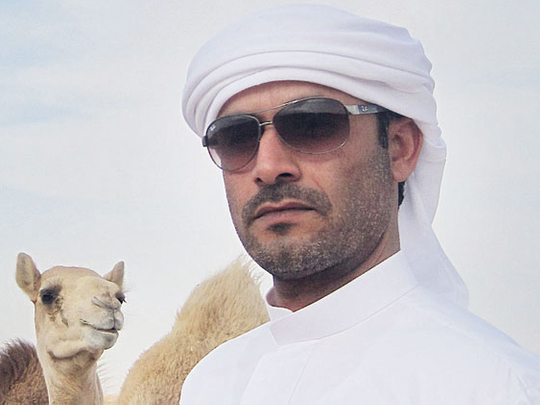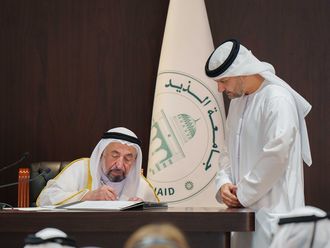
The western region of Abu Dhabi, also known as Al Gharbia, remains an undiscovered gem of the UAE. Encompassing 60,000 square kilometres, the area is home to some of the country's most beautiful virgin landscapes.
A region far removed from the hustle and bustle of the northern Dubai and Sharjah emirates, a visit to the place is like taking a step back in time to experience the UAE of days gone by; a time before towering skyscrapers and gargantuan shopping centres.
Yet Al Gharbia is far from forgotten. It is filled with ambitious youth eager to succeed, albeit through methods alien to their more urban Emirati counterparts.
Campus Notes spent a day at the Higher Colleges of Technology in Madinat Zayed (HCTMZ) to meet a student who, in addition to his studies, breeds camels.
As knowledge thirsty and enthusiastic as they are to embrace the modern age, HCTMZ students keep one foot firmly placed in their past and serve as an emerging example of old meeting new.
Lucrative business
Sultan Khamis Bin Swelih Al Hameli is in his first year of a two-year job preparation programme at HCTMZ, which will equip him with various fundamental business skills.
However, along with his three brothers he owns a camel farm with a total herd of 160. He owns 25 of the magnificent animals. "We raise camels because it is something we inherited from our ancestors and are holding on to," said Al Hameli.
While upholding traditional Bedouin customs, the farm is also a lucrative source of income. "If a calf is any good at racing, it can sell for up to Dh35 million and above, but if it isn't, it will sell for around Dh1,000, not more," Al Hameli said.
The camels are separated into pens. The older females are kept together for breeding and milking and the calves are grouped together and bred for racing. The males are kept separately in individual enclosures to prevent conflict over females as camels can be very jealous creatures.
A place of peace
Leading a life different from that of many of his peers, 30-year-old Al Hameli visits his farm in the middle of the serene desert every day for at least two hours.
"I don't find it difficult to cope because the most important thing is university. When I finish all of my day's studies and am free, I come to the farm," he said.
Al Hameli said daily visits are a must in order to check on the condition of the camels and make sure their health is in top form.
However, the farm also serves as his escape.
"When the city gets too much for me I come to them and feel at peace," he said. "This is something passed down to us from our ancestors and remains in our blood, that is what brings me peace. It takes me back to the old days — even if I never lived it, I feel it," added Al Hameli.












